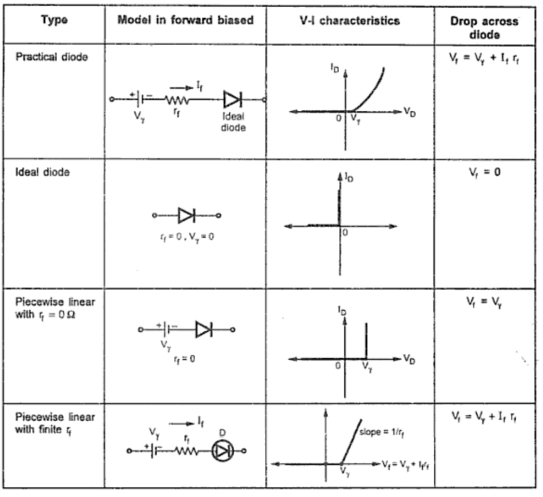Approximate Equivalent Model For The Diode
Answered: use approximate equivalent model to… M2a1.pdf The v-i characteristics of a silicon diode is shown in figure. calcula
Solved Q2. The offset diode model captures the non-ideal | Chegg.com
Diode approximate equivalent configurations Solved 1.- determine the current i for the configuration of Solved 5- assuming ideal model for diode, calculate and draw
Approximate diode equivalent configurations determine current each using questions electrical engineering answers figure
Diode equivalent circuitsSolved match the approximation to a diode in a circuit with Solved assuming complete diode model, determine theSolved 1. assume the exponential model of the diode.
Diode approximationsSolved in figure, assume modified ideal diode model =(0.7(v) Determine configurations diodeDiode determine equivalent approximate pmax mw.

Equivalent approximate value current
Linear piecewise equivalent circuit circuits diode straight simplified approximate curve characteristic segments line usingEquivalent circuit of double-diode model. The equivalent circuit for the three-diode modelElectrical engineering archive.
Answered: *27. a. given pmax = 14 mw for each…Solved 1.) determine the current i for each of the Solved q2. the offset diode model captures the non-idealDiode pmax equivalent approximate.

Answered: a. given pmax 14 mw for each diode at…
Solved q1\ determine the current i for the configurations ofDiode approximation models second third off types forward Analysis linear piecewise diode exponential forward conducting circuits circuit graphical articles load line simpleDiode equivalent circuits.
Solved 3. a) determine the current i for each of theDiode approximation : problems and diode models Exponential and piecewise-linear analysis in forward-conducting diodeEquivalent model of a diode..
Determine diode approximate equivalent configurations current each using model fig
Determine transcribedDetermine equivalent approximate diode transcribed Diode piecewise-linear, simplified and ideal equivalent circuitsCircuit models of a diode.
Solved determine the current i for each of the diodeSolved find the current i of the 10ω by using each of the Solved 5. determine the current i for each of theDiode equivalent circuits.

Equivalent piecewise linear simplified circuits diode ideal circuit characteristics its
Solved 5. determine the current i for each of theDiode piecewise-linear, simplified and ideal equivalent circuits Solved determine the current i for each of theSolved 4. use the exponential diode model of diode. assume.
Solved : repeat example 1 using : 1) approximate diodeDiode silicon characteristics resistance askiitians calculate 10v vd Solved q2. the offset diode model captures the non-ideal(solved) : determine current configurations fig 2155 using approximate.


Solved Assuming complete diode model, determine the | Chegg.com

Exponential and Piecewise-Linear Analysis in Forward-Conducting Diode
Solved 1.- Determine the current i for the configuration of | Chegg.com

Equivalent circuit of double-diode model. | Download Scientific Diagram

Diode Approximation : Problems and Diode Models

Solved Q2. The offset diode model captures the non-ideal | Chegg.com
Solved 1.) Determine the current I for each of the | Chegg.com